
Glassy eyes are a relatively common occurrence and many people had a chance to encounter it either directly or on someone else. To have glassy eyes means exactly what it sounds to be, having more luminosity and gleam in one’s eye than usual. To the onlooker, this type of condition usually generates a sense of not being able to aim one’s attention at something. Glassy eyes are easily diagnosed and treated, once the person gets all the necessary information about the condition from a health care provider.
Not Blinking Enough Can Cause Glassy Eyes
There are two levels of severity of glassy eyes that are likely to occur. A person may have a subtle condition, caused by not blinking as frequently as is necessary. At the same time, the lower intensity glassy eyes are present in drunk people, but in this case, they recover after the influence of alcohol diminishes. However, sometimes the occurrence of glassy eyes in a person is a sign of a more serious medical condition present in the body. For instance, having conjunctivitis or another kind of eye infection produced by a virus will likely lead to glassy eyes. As well, having chickenpox, shingles, Graves’s condition, and hypoglycaemia can all cause the person to have glassy eyes. Similarly, sustaining an injury to the eye, such as a tear or a punch, may result in developing this problem. Not surprisingly, lots of drugs, both prescribed and over- the-counter, do have glassy eyes as one their relatively subtle side effects.
Treatment for Glassy Eyes
If an individual believes he or she may be affected by the glassy eyes condition, it is advised that nothing is done before consulting with a health care professional. Once the condition is properly diagnosed, the person will receive adequate help for whatever the main cause of glassy eyes might be. For instance, if the problem is a person’s hypoglycemia, the treatment will include consuming smaller meals more often during the day, and reducing the sugar from the diet to as low a level as possible. If the main problem comes from difficulties during blinking or an eye infection caused by a virus, in that case proper medication will be the course of treatment. For those individuals who do not blink as frequently as is necessary for the eyes to stay healthy, a doctor will advise that they make a conscious effort to increase this activity, and will probably be given Lubricant eye drops. Furthermore, an eye problem such as conjunctivitis is easily solved by taking drugs especially designed for it. In any other case of glassy eyes, the doctor will have to deal with a problem that caused this condition as one of its symptoms. Research shows in most cases another medical condition present in the individual is the cause of glassy eyes, which in turn means that anyone who experiences this change should get medical help as there is something going on in the body.
Black Spots in Vision
Glassy eyes are not the only relatively benign occurrence in the eyes that is ultimately caused by an illness or an unbalance in the body. Having black spots appear in one’s vision may induce anxiety as the person might feel like they are about to faint. Also, the individual could start worrying that there is something seriously fallacious going on with their health. However, like glassy eyes, black spots are an innocent occurrence that would not cause any adverse effects on the eyes. One should always keep in mind, though, that this kind of change is probably the result of a problem that hasn’t been diagnosed yet as it hasn’t shown any other symptoms. Consequently, individuals experiencing black spots in vision are highly advised to seek medical attention and find out what is causing this change.
Possible Causes of Black Spots in Vision
There are many illnesses that could have the appearance of black spots as one of their symptoms, and one such condition is posterior vitreous detachment. Posterior vitreous detachment involves a separation between the retina and its protecting membrane, and is often caused by an abrasion to the eye, or diabetes. Also, seniors are more prone to this kind of problem than the general public. As a result of the posterior vitreous detachment, the protecting membrane will melt and cause black spots. In addition, if the eyes get in contact with some sort of bacteria or virus, and the body is not able to fight off the infection, many eye problems will have black spots as a sign that something is wrong. Such bacterial or viral eye inflammations are relatively easily treatable. Finally, as one of the inevitable and unavoidable consequence of aging, losing vision or having eye problems over the age of 50 is very common. As the eyes shrink due to aging, lots of problems will start to occur, one of them being the black spots. The black spots in and of themselves are not harmless to the eye, so there is no reason to panic, but there is no treatment either, as this is a natural way to age.
- www.nhs.uk/live-well/healthy-body/look-after-your-eyes/
- www.nhs.uk/conditions/bulging-eyes/
- Photo courtesy of Look Into My Eyes by Flickr: www.flickr.com/photos/31672944@N07/2966114569


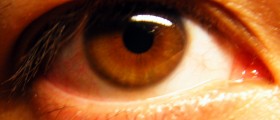


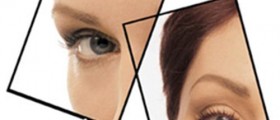
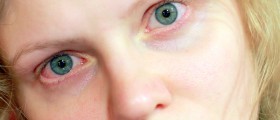




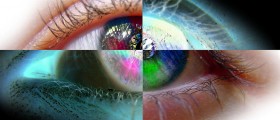



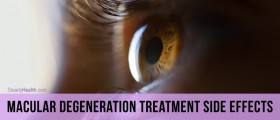

Your thoughts on this
Loading...